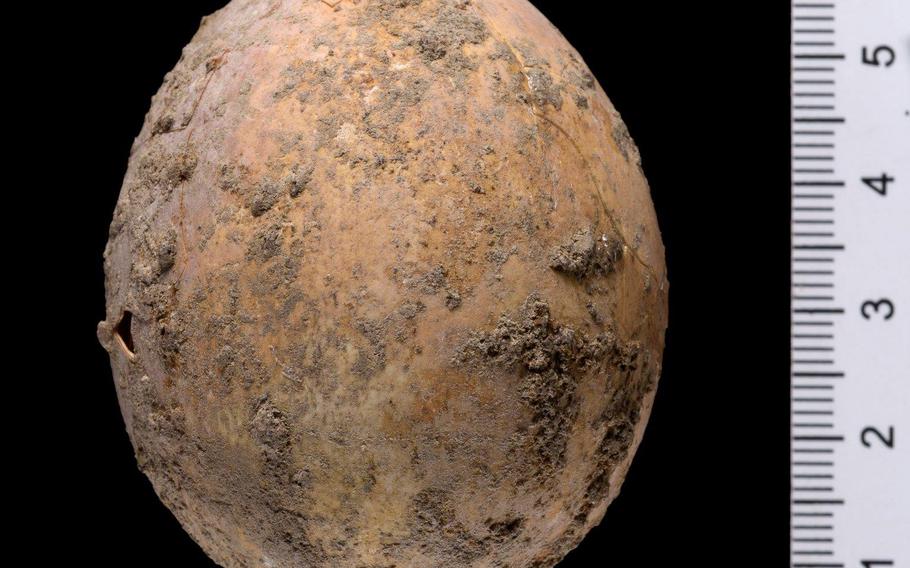
An intact chicken egg dating from roughly 1,000 years ago was revealed during archaeological excavations in Yavne, Israel. (Israel Antiquities Authority/Facebook)
Chicken eggs are so delicate they might not survive your shopping trip, let alone the journey home.
That explains archaeologists' surprise when they dug up an unbroken chicken egg in a thousand-year-old cesspit dating from the Byzantine era.
Archaeologists were excavating in Yavne, Israel, where they've been digging into the remains of an industrial era, when they came across the egg, which they say is about 1,000 years old.
That a whole egg had been deposited into a cesspit was noteworthy enough, but the egg's mostly pristine condition (sans yolk, which had leaked out of a small crack in the bottom) was even more striking.
Because of their fragile shells, hardly any whole chicken eggs have been preserved, Lee Perry Gal, an archaeologist with the Israel Antiquities Authority, said in a news release.
Cesspits and sewers aren't the most pleasant places, but they can yield gold for archaeologists. The waste pits often reveal more about life in bygone societies - and it isn't unusual to find things that aren't related to human waste. Last year, for example, archaeologists in London found100 artifacts in a 15th-century cesspit. The finds helped shed light on the lives of people who lived in a sumptuous medieval mansion.
The industrial zone is thought to have existed for several centuries. Other artifacts revealed thus far include an intricate 1,600-year-old mosaic thought to have been part of a wealthy residence nearby.
The egg's location seems to have been a lucky coincidence; the soft human waste that surrounded it served to preserve it for the ages. The researchers say that people began farming poultry in Israel about 2,300 years ago, and that poultry protein was especially important during the region's Islamic period, during which pork consumption was banned.
As the egg was excavated, the archaeologists accidentally cracked its shell. Conservators managed to repair it in the lab.